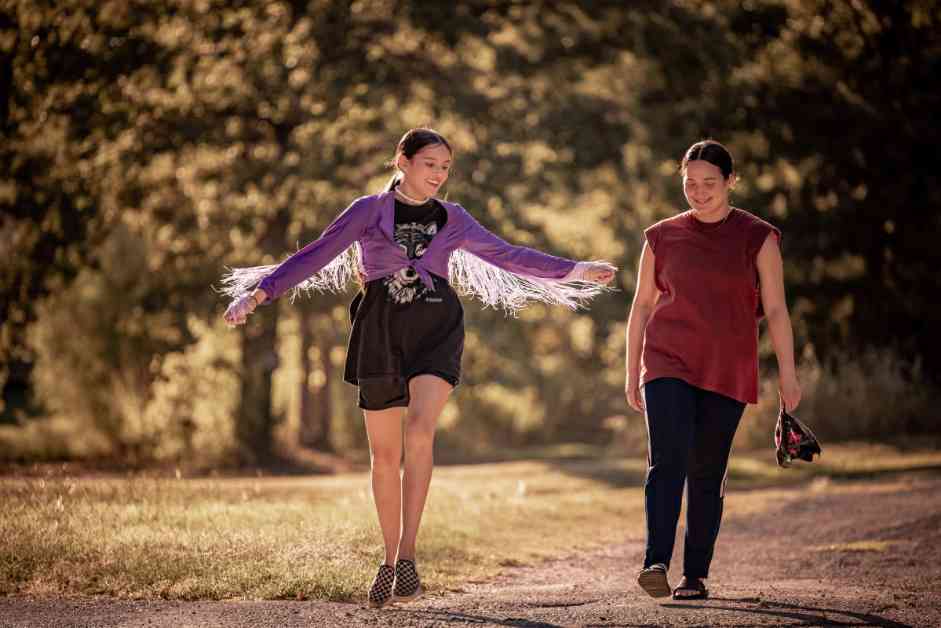Lily Gladstone has had an incredible year so far, with various achievements under her belt by June. Apart from winning the Golden Globe for Best Actress and receiving an Oscar nomination for her role in Killers of the Flower Moon, she has also been a part of a Hulu limited series and served on a jury at Cannes. However, it is her latest project, Fancy Dance, that has really put her in the spotlight.
Fancy Dance, directed by Erica Tremblay, tells the story of Jax, played by Gladstone, who is looking after her niece, Roki, on the Seneca-Cayuga reservation in Oklahoma. The film addresses important Indigenous issues such as the Missing and Murdered Indigenous Women crisis, poverty, and adoption policies, all from a Native perspective with Indigenous individuals involved in the writing, directing, and acting.
Both Gladstone and Tremblay emphasized the need to portray Indigenous stories from the perspective of Indigenous people, rather than through the lens of a white savior figure. They wanted to center the narrative around the experiences of Indigenous women, which is often overlooked in mainstream media.
Gladstone mentioned that the success of Killers of the Flower Moon helped create a demand for more Indigenous stories and experiences from global audiences. This paved the way for Fancy Dance to be widely recognized and appreciated. The film, distributed by Apple TV+, has been well-received and complements the themes explored in Killers of the Flower Moon.
The discussion around Indigenous representation in Hollywood is crucial, especially considering the lack of Native American female-identified speaking characters in top-grossing films over the years. Gladstone, Tremblay, and Deroy-Olson all expressed their gratitude for being part of a movement that is pushing for more Indigenous representation on screen.
While they acknowledge the progress that has been made, they also understand that there is still a long way to go. Tremblay expressed optimism about the future of Indigenous representation in Hollywood, hoping that the industry will continue to uphold its commitment to diversity and inclusion.
As audiences embrace films like Fancy Dance and recognize the importance of authentic Indigenous storytelling, the hope is that more opportunities will open up for Indigenous filmmakers, actors, and storytellers. The success of projects like Fancy Dance is a step in the right direction, signaling a positive change in the landscape of Indigenous representation in the entertainment industry.





















